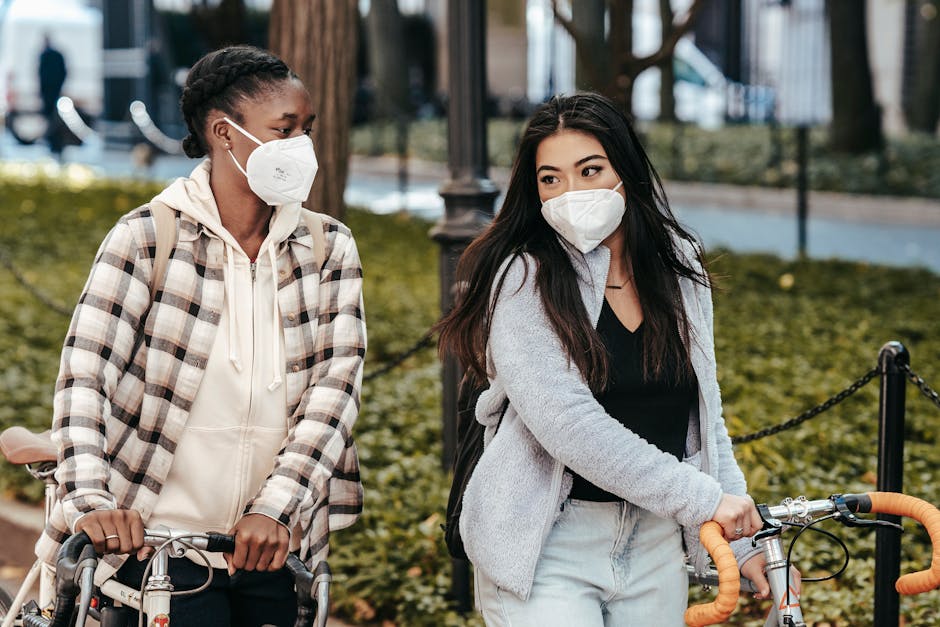Navigating the Aftermath: Your Guide to the Best COVID-19 Resources and Long-Term Strategies
The COVID-19 pandemic, while hopefully receding from its peak intensity, has left an undeniable mark on the world. Beyond the immediate health crisis, the virus continues to impact individuals and communities in profound ways, prompting a need for ongoing understanding, support, and strategic planning. This comprehensive guide aims to provide you with the best resources and actionable strategies to navigate the ongoing challenges and build a healthier, more resilient future.

Understanding Long COVID and its Impact
One of the most significant lasting consequences of COVID-19 is the emergence of long COVID, also known as post-COVID-19 condition. This refers to a wide range of persistent symptoms that can occur weeks or months after the initial infection, even in individuals who had mild or asymptomatic cases. Symptoms can vary greatly, but commonly include:

- Fatigue
- Brain fog
- Shortness of breath
- Chest pain
- Heart palpitations
- Joint pain
- Loss of taste or smell
- Sleep disturbances
The unpredictable nature of long COVID makes diagnosis and treatment challenging. There is currently no one-size-fits-all approach, and management often involves a multidisciplinary team of healthcare professionals.
Finding the Best Healthcare Resources for Long COVID
Seeking appropriate medical care is crucial for those experiencing long COVID. The best approach often involves a combination of specialists, including:
- Primary Care Physician (PCP): Your PCP serves as the central point of contact, coordinating care and referring you to specialists as needed.
- Pulmonologist: For respiratory issues like shortness of breath and chest pain.
- Cardiologist: To address heart-related symptoms such as palpitations or chest pain.
- Neurologist: For neurological symptoms like brain fog, headaches, and memory problems.
- Rheumatologist: For joint pain and other musculoskeletal issues.
- Physical Therapist: To help regain strength, endurance, and mobility.
- Occupational Therapist: To assist with daily living activities and work adaptations.
It’s essential to be proactive in advocating for your healthcare needs. Keep detailed records of your symptoms and communicate openly with your healthcare team.
Mental Health Support Post-COVID
The pandemic’s impact extends beyond physical health. Many individuals have experienced increased levels of stress, anxiety, depression, and trauma. Seeking mental health support is crucial for coping with these challenges. Resources include:

- Therapists and Counselors: Provide individual or group therapy to address mental health concerns.
- Support Groups: Connecting with others who have experienced similar challenges can offer invaluable emotional support.
- Online Resources: Numerous websites and apps offer mental health information, self-help tools, and access to mental health professionals.
- Crisis Hotlines: Provide immediate support for those experiencing a mental health crisis.
Strengthening Your Immune System for Future Protection
While vaccines offer significant protection against severe illness, maintaining a robust immune system remains essential. Here are some key strategies:
- Maintain a Healthy Diet: Focus on nutrient-rich foods like fruits, vegetables, whole grains, and lean protein.
- Prioritize Regular Exercise: Physical activity helps boost your immune system and overall health.
- Get Sufficient Sleep: Aim for 7-8 hours of quality sleep per night.
- Manage Stress Levels: Chronic stress can weaken the immune system. Practice stress-reduction techniques like meditation, yoga, or deep breathing.
- Stay Hydrated: Drink plenty of water throughout the day.
- Maintain Hygiene Practices: Regular handwashing, sanitizing, and covering coughs and sneezes help prevent the spread of infections.
Staying Informed and Prepared
Staying informed about the latest COVID-19 updates and guidelines is crucial for protecting yourself and your community. Reliable sources of information include:
- World Health Organization (WHO): Provides global updates and guidelines.
- Centers for Disease Control and Prevention (CDC): Offers U.S.-specific information and recommendations.
- Your National Public Health Agency: Check your country’s public health agency for local guidelines and updates.
The Long-Term Economic and Societal Impacts of COVID-19
The pandemic has had profound and lasting economic and societal repercussions. Understanding these impacts is crucial for navigating the future. Key areas to consider include:
- Economic Recovery and Inequality: The pandemic exacerbated existing economic inequalities and led to job losses and business closures. Monitoring economic recovery efforts and advocating for policies that promote equitable growth are critical.
- Healthcare System Resilience: The pandemic highlighted vulnerabilities in healthcare systems worldwide. Investing in infrastructure and workforce development is essential for building more resilient healthcare systems.
- Social Support Networks: Strengthening social support networks and community resilience is critical for supporting individuals and communities affected by the pandemic’s long-term effects.
- Global Cooperation: International collaboration is essential for preventing and responding to future pandemics.
Navigating the aftermath of COVID-19 requires a multifaceted approach. By understanding the long-term impacts, accessing appropriate resources, and implementing preventative strategies, we can build a healthier and more resilient future for ourselves and our communities. Remember to always consult with healthcare professionals for personalized advice and guidance.

